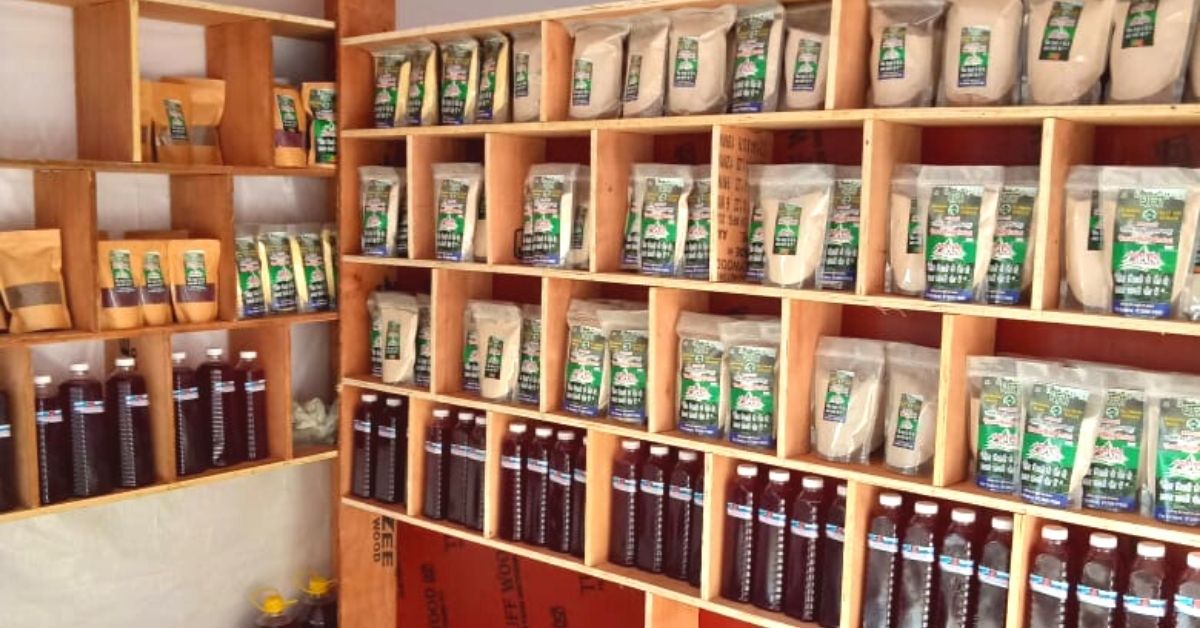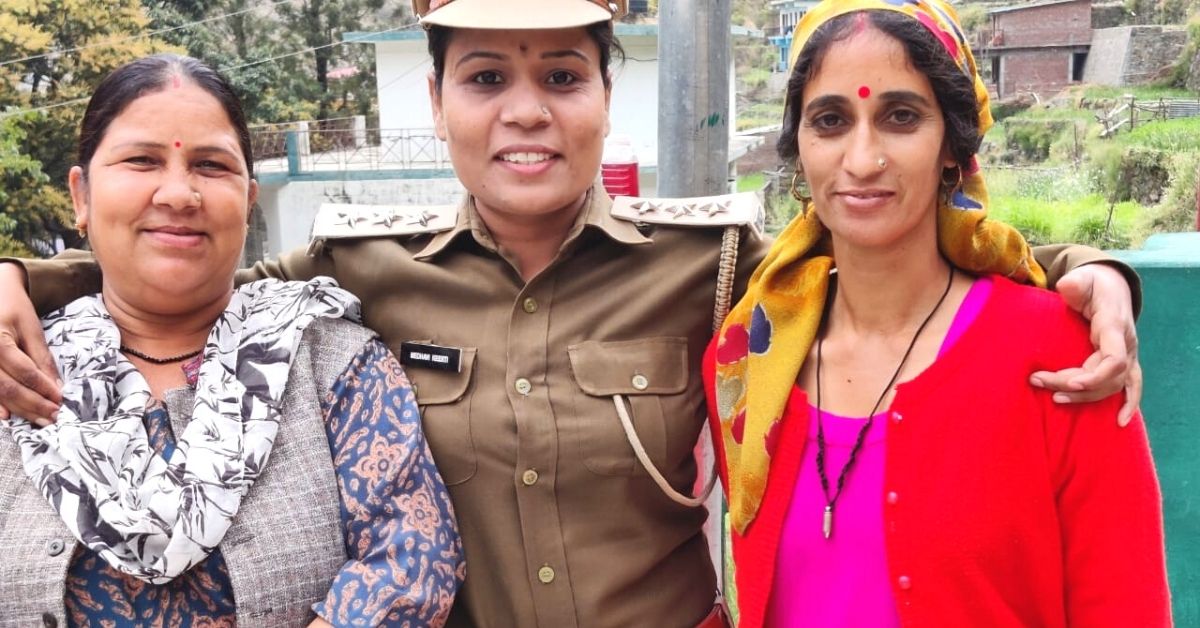In Uttarakhand’s Bandasari village, Nirmala Devi Pawar, along with 10 other women, produces, packages, and sells organic wheat flour, gram, pulses, rhododendron juice and other products. “We collect the produce, clean it and package it to sell to tourists and locals. On a good day, I earn Rs 2,500 as profits,” the 50-year-old says.
Like Nirmala, around 100 women across five villages in the Bhadrigaad range, which comes under the Uttarakhand Forest Department, are involved in various jobs to generate livelihood. This is all thanks to the efforts taken by Forest Range Officer Medhavi Keerti (30), who conceived Dhatree (which means mother), an initiative for women empowerment. Dhatree has helped women increase their income by almost ten times. The initiative was launched in May 2020, wherein a few women were roped in to source locally available material and turn it into organic, natural and chemical-free products.
Understanding the hardships of a woman

“My father passed away when I was young, and my mother shouldered the entire responsibility of the family. I have seen her toil and work hard to educate and allow me to become a forest officer,” Medhavi tells The Better India.
She adds that having understood and seen the hardships and sacrifices faced and made by women, she knew their empowerment was essential. “Four months after I joined the services, I discussed the idea with Divisional Forest Officer Kehkashan Naseem. The officer agreed, and we began training women in various skills,” Medhavi says.
The initiative began in Budgaon village, with 25 women undergoing training in making turmeric soap, cosmetics, incense sticks, oils from medicinal plants, shampoos, and other products from locally available raw materials.
“All of the agriculture produce, such as rajma, dals, or cereals, is organic and chemical-free. Many farmers here cannot afford chemical fertilisers and pesticides in the first place. In October, a store by the name of Dhatree was opened to house over 100 products,” says Medhavi. She adds that the initiative was an instant hit. Women earned thousands of rupees during the festive season of Diwali.
Among them was Shalini Bhandari. “I sold incense sticks, idols and other items made from cow dung. Initially, the sales were slow, and I would earn around Rs 8,000 a month. But now I register a business of Rs 1 lakh,” she says.
The 21-year-old adds that the line of work serves best, as women do not have to migrate for work. “Many women marry at a young age and become busy with house chores. They are unable to seek any opportunity to become financially independent. Men often discourage women from exploring employment opportunities. Hence, the initiative helps make women financially secure,” she adds.
The more, the merrier
Dhatree’s success soon spread to other villages, and many women approached Medhavi to be part of the initiative. “I started getting calls from women who expressed their wish to learn the skills we were teaching,” Medhavi says, adding, “The products made by women across all villages are sold under a single brand, Dhatree. The forest department’s role is limited to marketing and establishing the supply chain.”
She adds that it is not that such business models never existed. “But the experiment had never been tried at a collective and professional scale. The women sold juices, jams and extracts of rhododendron and other materials on a small scale. But they were not hygienic and did not market their products professionally. The improved skills helped upscale and earn better,” Medhavi says.
She adds that men in these villages have also become a part of Dhatree, and are helping women procure raw materials and providing any assistance needed in production.
Despite the new zeal and confidence, Medhavi says that it was difficult to convince women to join the initiative initially. “They were apprehensive about how successful this initiative would be. They were also doubtful that tourists and villagers would want to buy their products. But our initial success removed these fears,” she adds.
The women are now working to make eco-friendly plates from leaves and receiving training to prepare dyes from natural materials such as flower petals and leaves. “We are calling the brand Tikri, named after the village it started in,” Medhavi says.
Medhavi’s efforts have earned her the popular tag of ‘Ranger Didi’ among the women.
Edited by Divya Sethu
If you found our stories insightful, informative, or even just enjoyable, we invite you to consider making a voluntary payment to support the work we do at The Better India. Your contribution helps us continue producing quality content that educates, inspires, and drives positive change.
Choose one of the payment options below for your contribution-
By paying for the stories you value, you directly contribute to sustaining our efforts focused on making a difference in the world. Together, let's ensure that impactful stories continue to be told and shared, enriching lives and communities alike.
Thank you for your support. Here are some frequently asked questions you might find helpful to know why you are contributing?

